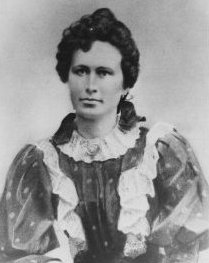People coming from the east to Western Kansas in the late 1870s and early 1880s felt sure they had reached a land, where, by labor, they could turn it into a Paradise. As they looked across the rolling plains for miles and miles with not a mountain or hill to obscure their sight and away in the distance they could often see herds of buffalo and antelope as well as cattle and wild horses browsing the grass and as the song goes, “The skies are not cloudy all day.” But things did not remain in this condition for long.
Hunters came in and killed the buffalo by the score, sometimes taking only the hide to sell, leaving the rest of the animal for the coyotes and other wild animals to eat. Whole herds of wild horses were walking until they became so weary and footsore that they could be driven into a corral and captured and sold.
When these newcomers were informed that the United States Government would give each settler of age 21, 160 acres of land as a homestead if they would plant and cultivate a certain number of acres of land, build a house and live on it for five years, “My, how wonderful,” they thought. Why, it was just so grand! To get a home for so little.
Mrs. Davis and family who had come out from Chicago recently was one of these and they secured a nice homestead one-half of a mile west of Lakin. They built a little two room house, but there was no water or fuel, except as they picked up coal along the railroad track, go to the river a mile away and gather wood or picked up buffalo chips where were quite plentiful. Carrying water half a mile was a hard task, so she had a man about 25 years old, single, come and dig a well. He turned out to be quite an interesting character to her. His name was Jerry Curran and he said he was from Hot Springs, Va., the same place Mrs. Davies had spent her girlhood days.
Mr. Curran dug the well and got a nice supply of water, that was still there as long as Mrs. Davies knew anything about the place. Next, being anxious to live up to the regulations of the government, she planted some potatoes but they failed to come up. It was so dry. Just no rain at all. In the fall she thought she would like to see just what the potatoes looked like so she found they had never as much as sprouted.
Those poor settlers found they paid price enough for their land by the time the five years had ended.

